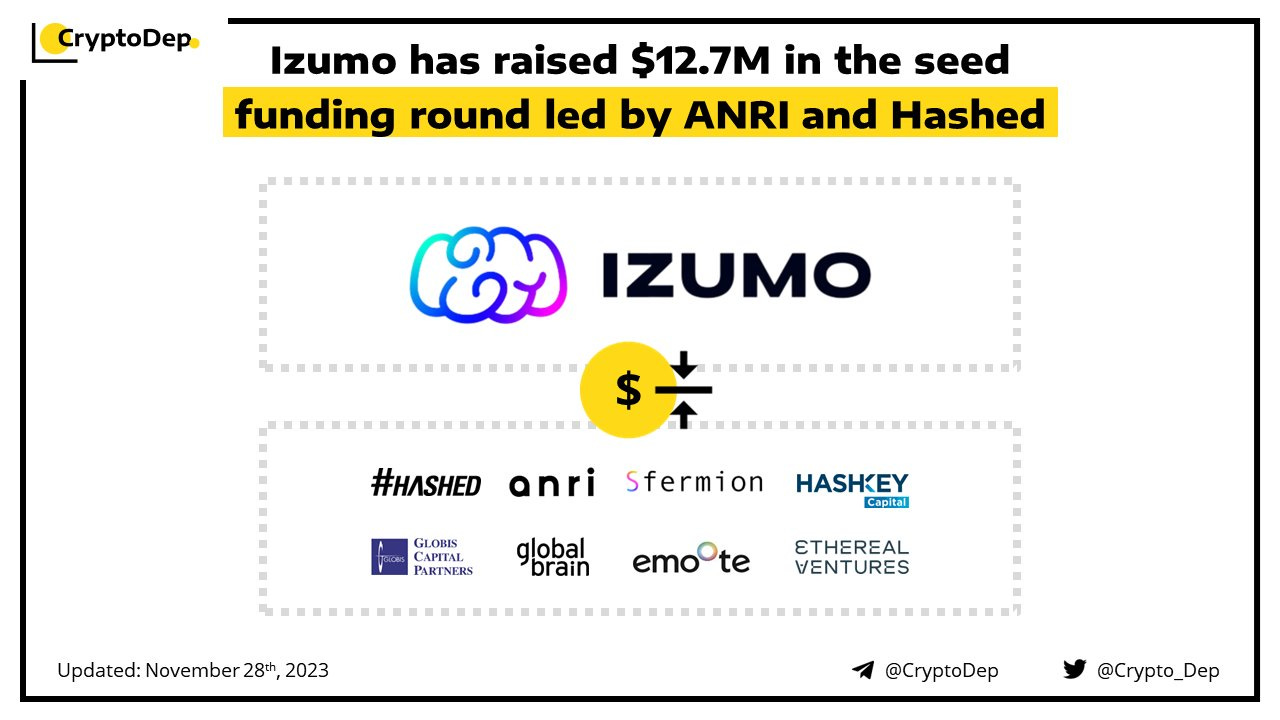[Research] Japan's Web3 Trends in 2023/2024
Japan's Web3 market is expected to continue its momentum in 2024, thanks to easing regulations and favorable market conditions.
Intro
Last year's article explored why the Japanese Web3 market is gaining traction after going through an unusually long winter compared to others. Specifically, the article explained the following reasons behind it: a) the isolation from the global market acting as an advantage; b) successful risk management through regulations; c) the pro-Web3 stance of the government; d) increased utilization of intellectual properties due to the expansion of the industry; and e) the change of social perception.
In 2023, the Japanese Web3 market has seen a number of developments driven by continued support from the government and market recovery. This article will focus on the following updates that are notable for Japan this and next year:
Slow but Predictable Regulatory Changes
Corporate Giants Finally Stepping in
Global Teams Making Engagements in Japan
1) Slow but Predictable Regulatory Changes
Japan introduced the first crypto exchange license in the world in 2017 and carefully overhauled regulations throughout the past six years. The country introduced new regulations until 2020, maintained them between 2020 and 2023, and has been relaxing them since 2023. This is largely due to the policy stance of the Kishida administration.
Web3 is a national agenda for Japan. Prime Minister Kishida sent congratulatory video messages to crypto conferences this summer, namely IVS 2023 Kyoto and WebX 2023. The Web3.0 Policy Office, established under the Ministry of Economy, Trade and Industry (METI), has 40 dedicated public officers endeavoring to promote the Web3 industry. (Imagine President Biden speaking at Consensus and a dedicated Web3 organization under the US Department of Commerce.)
As the regulations are expected to loosen continuously next year, the Japanese Web3 industry feels their voices are finally being heard after all the hardships. All of the following changes either have taken place this year or will take place next year:
A regulatory framework that allows the legal issuance of stablecoins (June 2023);
The resolution of the so-called "Watanabe Sota Problem" (referring to the issue where Sota Watanabe, the Founder of Astar, had to leave Japan to pursue his business), meaning that unrealized crypto gains on self-issued tokens will not be taxed anymore (June 2023);
No taxation of crypto gains on third-party-issued tokens with technical restrictions on disposal (expected in 2024); and
A review on amending the law to allow venture funds’ direct investment in tokens (expected in 2024).
Last but not least, there is also a possibility that Japan may become the first country in the world to adopt a regulatory framework for DAOs.

The regulatory trends in Japan are characterized by the pace of change being extremely slow, while the direction is reasonable and predictable. Some say that Japan is like a train. Once the direction is set, the train will move, but not too fast. It's also difficult to adjust the direction once the train departed, hence the train is bound to reach the destination along the rails at some point.
Nevertheless, there's still a long way to go. The much-anticipated tax deferral of year-end crypto gains on third-party-issued tokens turned out to be limited to cases where a technical restriction on disposal exists (e.g. cliff or vesting) and is being criticized as a half-hearted reform. The segregated taxation on individual crypto gains, which is considered the final boss of the game, also has no signs of being adopted in the near future. However, given that the country is definitely moving towards regulatory loosening the Japanese Web3 market still has a lot of cards to play and more good news to come.
2) Corporate Giants Finally Stepping in
In 2023, many corporate giants entered the Web3 market or took more aggressive actions than in the past. Here's a look at some of their activities:
NTT Docomo (NTT Digital): Japan's largest telecommunications company made headlines in November 2022 when it announced plans to invest up to 600 billion yen (US$ 4.2B) in the Web3 industry over the next six years. The company has since established a subsidiary, NTT Digital, to pursue Web3 projects with Accenture as a partner. Last month, it unveiled a public beta version of its wallet service called Scramberry, with plans for a full launch in February 2024.
MUFG (Mitsubishi UFJ Financial Group): In October 2023, MUFG, the largest financial group in Japan, launched its digital asset platform "Progmat" through its trust bank, MUTB, with participation from NTT Data, Mitsui Sumitomo Financial Group, Mizuho Bank, and others as shareholders. Through Progmat, the group plans to embrace a national infrastructure for security tokens, utility tokens, and stablecoins.

Shareholders of Progmat (Source: MUTB’s Press Release)
Sony: The electronics giant, through its subsidiary Sony Network Communications, announced a joint venture with Startale Labs, led by Astar's Sota Watanabe, to develop its own blockchain. Sony has a portfolio of businesses that has good synergy with Web3, including PlayStation, Sony Pictures, and Sony Music and is also known to be active below the surface.
SBI: As the most aggressive player in the Japanese Web3 market by far, SBI has been an industry pioneer, obtaining its own crypto exchange business license (SBI VC Trade) and acquiring three exchanges (Taotao, FXCoin, and Bitpoint Japan). It established SBI Ripple Asia with Ripple in 2016, acquired liquidity provider B2C2 in 2020, and acquired an NFT marketplace startup to operate as SBI NFT in 2021. In November 2023, SBI announced a $100 million venture fund in the UAE with Standard Chartered and has been increasingly partnering with global companies, including a partnership with Circle and an MOU with Saudi Aramco.
Nomura: In 2018, Japan's largest investment bank partnered with Ledger to establish Komainu, a crypto custody business. Later, it established a crypto arm in Switzerland called Laser Digital, operating crypto asset management, trading, and venture investment business. In October 2023, Laser Digital opened an office in Tokyo to expand its business in Japan.

Laser Digital launching their Japan office (Source: Laser Digital) Fujitsu: In February 2023, Fujitsu, a major Japanese IT company, launched a Web3 Acceleration Platform, which provides a dev environment including APIs for blockchain and high-performance computing. It has been running a year-long pilot program with the Asian Development Bank (ADB) to verify the safety of cross-border transactions using blockchain.
All Nippon Airways (ANA): In May 2023, Japanese airline ANA launched an NFT marketplace, GranWhale, through its subsidiary ANA NEO, selling works by famous photographers as NFTs.
Sanrio: The owner of Hello Kitty, Sanrio, announced a collaboration with Gaudiy, a Web3 fan platform, to launch an SNS service based on Arbitrum and GPT-4 in 2024, utilizing Sanrio’s intellectual properties.
Some of these challenges, unfortunately, might not find a good product-market fit and will eventually fail. However, just as AI found a popular use case with generative AI after a long period of time, one could say such challenges are necessary in moving towards mass adoption of Web3.
3) Global Teams Making Engagements in Japan
As more people noticed that there is a huge potential in the Japanese Web3 market, a flood of interest and attention came into Japan. Personally, it was more than Japan could handle.
Conferences: ETH Tokyo, held in April 2023, had an overwhelmingly high percentage of foreign attendees compared to previous years. Some foreigners who attended ETH Tokyo even said, somewhat seriously, that they would love to relocate to Japan. IVS and WebX, held in June and July, respectively, also recorded more than 10,000 participants, thanks to foreign attention.
Relocation of Chinese Founders: Chinese founders were quick to recognize the opportunity of the Japanese market and have been moving to Japan since the beginning of the year. They are leaving China, which is hostile to crypto, and the U.S. and Singapore, which are becoming more stringent, to find a new base in Japan. The Chinese presence in Japan’s crypto community is steadily increasing.
Circle: Japan's B2B payments market is an annual one quadrillion yen (US$ 7T) market, meaning 1% adoption of stablecoins would create a 70 billion dollar market. Circle, the issuer of USDC, has previously invested in JPYC, a Japanese stablecoin project, and recently announced a partnership with SBI to circulate USDC in Japan. (Disclosure: Hyperithm is an investor in JPYC.)
Binance Japan: Binance acquired Sakura Exchange Bitcoin (SEBC) from Kakao Piccoma (formerly Kakao Japan) and is now operating it as Binance Japan, which officially launched in November 2023. With the launch, it became “the exchange with the most number of tokens listed (47)” in Japan.
Hashed: The most reputed crypto VC in Korea recently co-led a $12.7M seed round for the VTuber platform “IZUMO” with the Japanese VC ANRI. In a recent interview, Hashd cited Japan as one of the top markets they focus on in Asia, along with Thailand, India, and the Middle East. (Disclosure: Hashed is an investor in Hyperithm.)

IZUMO's seed round investment news (Source: CryptoDep) IMX, Sei, Axelar, and other Layer Ones: IMX, which got listed on a series of Japanese exchanges in 2023, and Sei, which has been on a steady rise since its mainnet launch, have each hired a BD representative in Japan to build partnerships. Axelar, which focuses on cross-chain communication, is also said to be tapping several Japanese teams. (Disclosure: Hyperithm is an investor in Sei.)
As various global teams are tapping the Japanese market at this point, and some have made significant progress in their discussions, more exciting announcements will hit the market next year.
Outro
Japan's Web3 market is expected to continue its momentum in 2024, thanks to easing regulations and favorable market conditions. Some questions worth keeping a close eye on for 2024 include:
Would Japan’s Web3 VC ecosystem finally flourish amid regulatory changes?
Would Web3 adoption take place in the B2B market?
Would local use cases be able to achieve their goals?
Speaking of local use cases, there is a tax donation system in Japan called Furusato Nozei, which means “hometown tax payment.” It allows taxpayers to make donations to local governments outside of their residential district throughout the year and receive gifts from them up to 30% of the value of the donation, along with tax benefits. Furusato Nozei in Japan is a 1 trillion yen (US$ 7B) market, and similarly, a 1% adoption would create a 70 million dollar market. Projects such as Alyawmu and JPYC are targeting this market, and cities such as Izunamachi in Nagano Prefecture and Kushiro City in Hokkaido have announced that they will offer NFTs as gifts.

It’s interesting that there are numerous markets in Japan with limited upside but large in scale, such as the character intellectual property market of 18 billion dollars and the horse racing market of 21 billion dollars. This is why the adoption of Web3 in Japan will be so exciting.
About the Author
Lloyd is the founder and CEO of Hyperithm and a serial entrepreneur who founded this first start-up in his senior year at high school. After moving to Tokyo in 2017 to work for a Japanese family office and initially using Bitcoin as a cheaper way to remit his salary from Japan to Korea, he noticed the opportunity in the crypto B2B market and founded Hyperithm the following year. Lloyd majored in Political Science at Seoul National University and was listed in Forbes 30 Under 30 Asia 2022.
Copyright
This article is available for use and distribution under the following conditions:
Attribution: Users may copy, distribute, display, perform, and make derivative works and remixes based on it only if they give the author or licensor the credits in the manner specified by these.
Non-commercial: Users may copy, distribute, display, perform the work, and make derivative works and remixes based on it only for non-commercial purposes.
Share-alike: Users may distribute derivative works only under a license identical to the license that governs the original work.
Disclaimer
This article is for informational purposes only and is not financial advice. While the author has made a significant effort to ensure the accuracy of the information provided, the author does not explicitly or implicitly guarantee the accuracy or completeness of the information and is not legally responsible for it. The author is also not responsible for any losses from using this article for investment or other decision-making purposes.


